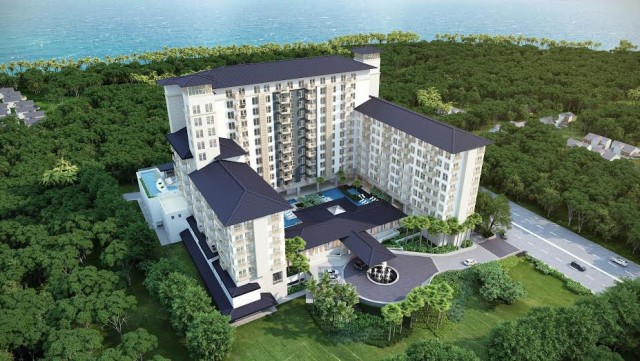The recent years have witnessed an upswing in the tourism industry. According to Colliers International’s Second Quarter 2015 Research and Forecast Report on the Philippines, the number of foreign arrivals to the country improved in the first five months of 2015, with year-to-date 2015 figures representing an 8.15% rise from the same period in 2014.
With this trend is the growing need to improve the quality of destinations and the availability of more accommodations in more parts of the country. Of particular note is the entry of a new kind of accommodation: the serviced apartment — a fully-furnished apartment with amenities usually available in hotels. It is a cheaper alternative to hotels, making it ideal for both short and long term stays.
“The booming economy equals new businesses, which equals to more executives looking for efficient places to live in the central business districts in the Philippines,” said Andrew Sparrow, Development Director for Dusit Thani Residences Davao.
Dusit Thani Residences Davao is Dusit International’s bid to add to the serviced residences options in the Philippines. The international hotel brand has recently opened its showroom for Dusit Thani Residences Davao. This is the first Dusit Thani Residences in Asia-Pacific, as the company’s other serviced apartments are located in Dubai and Abu Dhabi. The property is scheduled for turnover in 2018.
He explained that the international executive traveler will most likely stay for a duration of at least a week to a few months, and tends to prefer accommodations that provide the comforts of home, easy access to luxurious amenities and are ideally located near their workplace.
For such sector of the tourism market, serviced apartments are fast becoming a viable alternative. The services and amenities of high-end serviced apartments are comparable to those of the hotel counterparts, with the added feature of being able to accommodate long-term stays.
“Serviced apartments are relatively new in the Philippines, and this presents an opportunity to establish this kind of accommodation, aside from hotels,” Sparrow noted.
Choosing to establish outside Manila is intentional. The Colliers report also notes that the prevalence of direct flights from international locations to provincial destinations such as Cebu and Davao make stopping in Metro Manila unnecessary. This trend caters to a unique sector of the tourism market.
Sparrow emphasized Davao’s increasing dominance as a key economic hub in the southern part of the Philippines. Being the country’s second largest and fastest growing city presents an opportunity for the entry of more international quality of accommodations and amenities.
He added, “The location is strategic in two ways. First, the Residences are located in a major business hub south of the Philippines, which we see will help contribute to local investments and economic opportunities. Secondly, being situated within city limits allows our residents to create a productive and enjoyable work-life balance.”
Sparrow further explained the uniqueness of Dusit Thani Residences Davao: “The units are actually for sale. This means that prospective buyers can, firstly, enjoy the luxurious services and amenities of the property and, secondly, earn from it through short term leasing if ever they are not using the unit. Davao has a market that is ready for more high-end investments and accommodations, and we are confident that Dusit Thani’s experience and reputation will meet these discriminating expectations.”
The presence of a globally-recognized brand such as Dusit Thani will not only encourage international traveler to stay longer, but also help address the influx of travelers by increasing and diversifying the accommodation options in the province.








